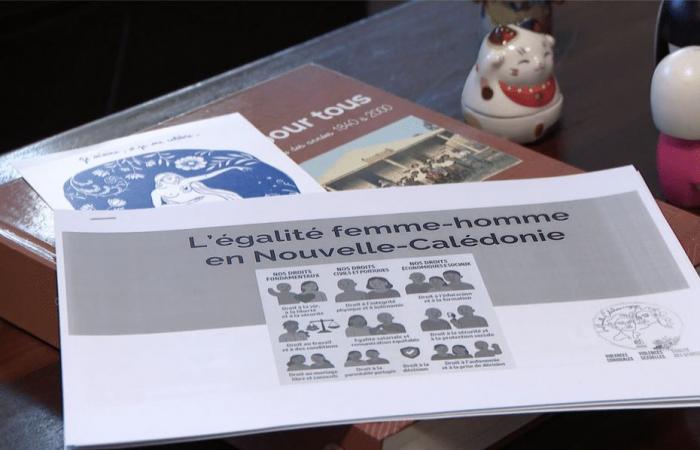On April 29, 1945, women could finally vote. The Caledonians were able to exercise this right later, in 1946, and Kanak women even had to wait until 1951 to have gradually access. This historical moment could have marked the beginning of real equality with men in politics. But the objective is far from achieved.
It was in 1944 that the National Liberation Council started the citizen revolution. The following year, the French people went to the polls for the first time, on April 29, 1945.
It was not until 1946 for women of European origin obtained the right to vote in New Caledonia. For Kanak women, it’s still another story. Their voice remains stifled by the colonial yoke until 1951, when the right to vote was gradually open to them. Women of other origins also experience late access to citizenship.
Although all of them have yet had a saying, some women imposed themselves on the political scene in 1946 by presenting themselves to the General Council as was the case with Florindo Paladini.
In 1953, a woman entered the municipal council of Noumea, Rose Beaumont, un First historical milestone. However, after more than 70 years, equality between men and women and parity in politics remains an unfinished objective.
The government of New Caledonia, for example, has only one woman among its 11 members. Isabelle Champmoreau is responsible for gender equality within the EXECUTIVE. She started politics 25 years ago and testifies to having been “Shocked when there was the law on parity [la loi organique n° 2000-612 du 4 juillet 2000 NDLR].”
She says: “It means that it takes a law to allow me to have a position, when there is none for men” This is nevertheless what allowed the elected official to sit on the various institutions and in particular the 18th government.
We must accept that we can regulate this field
Isabelle Champmoreau, in charge of equality men/women in government
As Isabelle Champmoreau did 25 years ago, women joined political ranks. They actively participate in the exchanges
Among the young people of the Les Républicains party, Marie-Camille Garnier Dal Gobbo has been hired for a year. She made this decision to follow the steps of her mother, who is also an activist. The young woman says: “It was she who has always explained the importance of her political opinions to me”.
Each week she finds other young people from the Les Républicains party to discuss their future political actions. Caledonian is involved in discussions and encourages women to be.
Even today, this is a fight that must be waged
Marie-Camille Garnier Dal Gobbo
Other women are part of the ranks of the Les Républicains party, such as Wendy Muliakaka, the young woman was close to politics very early, by the commitment of her parents. She explains: “Very young, I understood that we had the right not to agree and to express it”.
At the birth of her daughter, she made the decision to fully enter politics.
When I had my daughter, I wondered in which world I want her to evolve
Wendy Muliakaaka
By meeting the young section of the Les Républicains party, she admits to having “Recognized with other young people” And started to get involved.
Movements like the world march of women for the Oceania region would like to see applied To all decision -making spheres, including in the customary Senate, where no woman sits to date. Océane Trolue is a delegate of the movement, she explains: “The customary Senate is not a customary authority in a chiefdom. It is an institution in the town […]women also must be represented there “
Women are less represented in power areas. This imbalance goes beyond institutions, according to the Institute of Statistics and Economic Studies in New Caledonia, women are less likely to access positions.
The archive images used in the report come from the magazine Les Chemins de l’Histoire
To go further: the paths of history, season 3, episode 6: the archipelago of women






